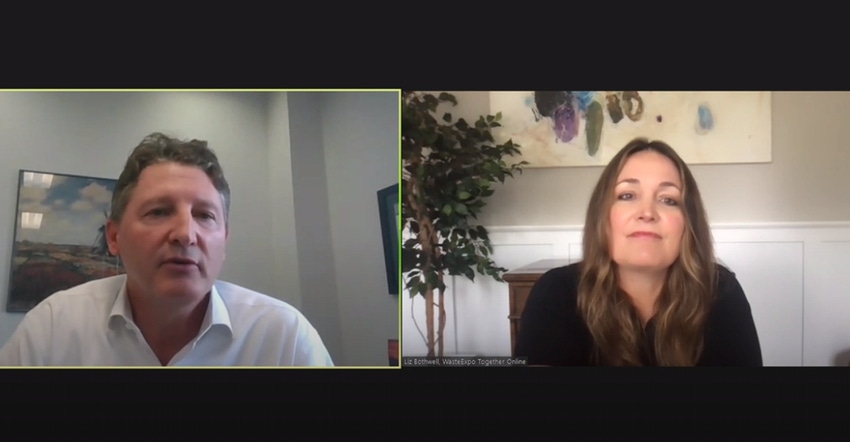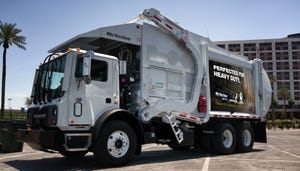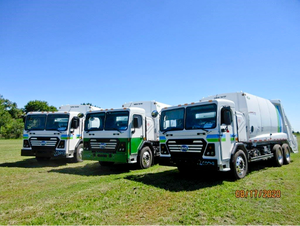Covanta COO Veenhof Discusses the Future of Waste to Energy in the United States

What does the future of waste to energy look like in the United States? Derek Veenhof, Covanta COO and executive vice president, recently shared his thoughts about the current state of the industry at WasteExpo Together Online.
He discussed WTE's connections with sustainability, the company's recent acquisition deal with ETQ and the misconceptions surrounding the process. Here is a snippet of the talk.
Waste360: When You imagine a truly sustainable society, what comes to mind for you?
Veenhof: To me, it starts with education, health and well-being as fundamental pillars for our society. I know we don’t often talk about sustainability that way. We often talk about it in the three p’s (people, profit, planet). I like to make it a little more personal. Education, health and well-being are the key drivers. Those are components for people to live good lives. You can jump down from there and start talking about climate change, global finite resources, sustainability at its whole, environmental impacts, equitable work for people – there’s a whole lot of places to jump off from those three pillars.
Waste360: Why do you think there’s hesitancy and what are some of the challenges we’re dealing with for bringing waste to energy to the U.S. in a bigger way?
Veenhof: There’s this thing called perception. We see it certainly with the pandemic. Over the last year and a half, as a society we’re struggling with different aspects revolving around the pandemic whether it be masking, vaccination, etc. So, perception really matters. I think a lot of perception around what Covanta does – waste to energy, or you can call it incineration – is really old.
A lot of data points from pre-modern-day waste-to-energy plants or incinerators keeps being dragged up to the forefront and people are saying those emissions are horrible. The reality is, modern waste-to-energy plants, the technology in them, is very protective of human health and the environment. So, let’s really get at the science. And I think that could be hard. There’s a lot of jargon that people aren’t exposed to. We talk about it in an engineering mindset or a scientific mindset and not everyone is going to get on that train. We have to find ways to correct the perception. Let people into the plants and get people exposed to it.
We’ve have to push on science and make sure what we’re doing is factual and correct and debate it.
Waste360: How do you answer what a renewable is worth and what’s a holistic path for that to flourish?
Veenhof: Let me give you a snippet of a study the University of Buffalo did on the impact of our Niagara Falls waste-to-energy path. It’s roughly 800,000 tons per year waste-to-energy plant that’s a major steam host to a bunch of industry around it and also a destination to some of New York City’s residential collected waste. Their study showed a spinoff effect from that asset that was three-to-four times what our tipping fees were. Do the math. Read three-to-four times on an economic spinoff effect. Those are substantial numbers that are meaningful when you talk about a circular economy. If you take that and move it around the geography and say this is what we can bring to the table and is waste renewable. There are different people who are proponents of that and people who are dead set against it, but the reality is that waste is 60% biogenic, or from nature and the other 40% is anthro, or man-made.
In Europe, that biogenic is definitely classified as higher value and that energy is more meaningful and its rewarded in the marketplace for that. We’re seeing more and more of that here. The value of our renewable energy credits are increasing. Why? Because other entities are recognizing the value of what we do.
Want to learn more? Watch the full discussion on-demand at WasteExpo Together Online.
About the Author(s)
You May Also Like




